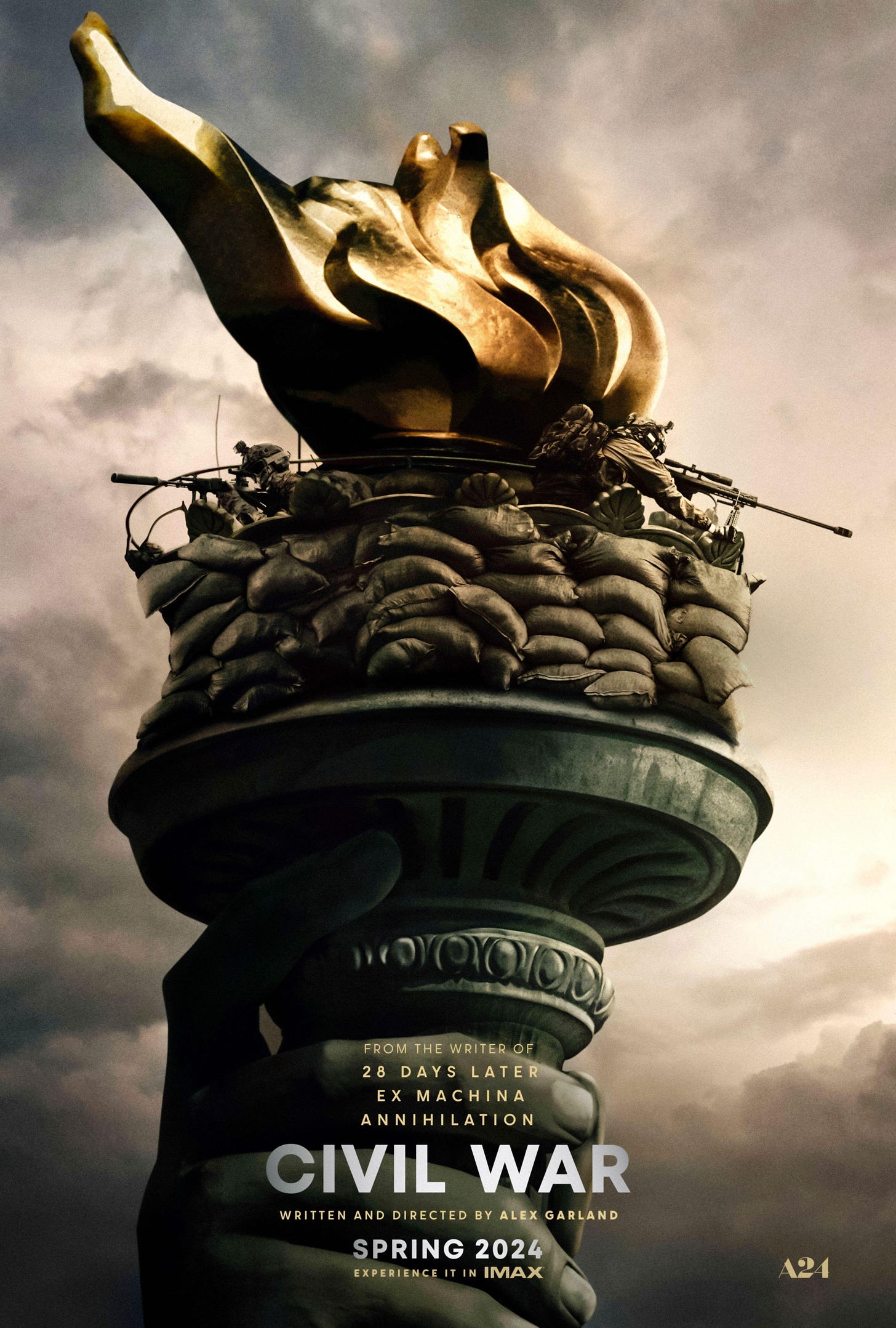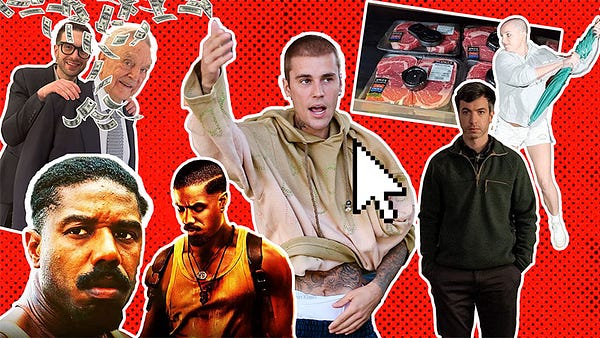
The Free Press

War is politics by other means. Except, that is, in Civil War, the much-hyped new movie from director Alex Garland out this week, which offers 109 minutes of bangs and explosions, but no real plot and no politics to speak of.
That is a stunning accomplishment considering that Garland made Ex Machina, one of the best movies of the last decade. It’s even more breathtaking considering that we are living in 2024 America—a country which, depending on who you ask, is going to hell in a handbasket because of drag queen story hour or bans on drag queen story hour.
Surely no Americans in history have deserved a good piece of speculative fiction. Or at least not since the 1860s.
But Civil War is only about what it would look like—and sound like—if contemporary America had a civil war. There is a crashed attack helicopter in a JCPenney parking lot. Looters are tortured in a car wash, metallic streamers flapping in the wind. Early on, we see a riot in New York and someone with a giant American flag lobs a grenade. Is she a patriot? An insurrectionist? We never find out. What we get instead is a very loud, often beautiful, and occasionally scary music video.
The film follows four war journalists, led by the brilliant Kirsten Dunst, on their treacherous journey from New York to Washington, D.C to cover the war. There’s plenty of time both to explain how an America in the not-too-distant future might get to this point and to weave in the explosions and gore expected in any good war movie.
But when I left the IMAX theater where I saw the movie, I could not tell you what it was about. This is not just because I no longer have an attention span and don’t pick up on analogies (I went to a state school, people), but because the movie never bothered to explain itself.
I know there were sides. In this case, four of them: the “Western Forces” of California and Texas, the “Florida Alliance,” the “New People’s Army” situated roughly in the Pacific Northwest, and the “Loyalist States.” But we have no idea what drove them apart, what they stand for, and what they want, other than to kill the president (Nick Offerman).

By yoking California and Texas together, perhaps the movie is telling the viewer not to think too much about politics, or how this might have happened. But isn’t that the interesting part? Politics doesn’t mean mash-ups of Rachel Maddow monologues or Donald Trump Truth Social posts, but actual politics: the study of how people organize themselves, how they accrue power, and how they act when they have it.
Instead we are left with barely perceptible nods: the current administration considers members of the press to be “enemy combatants.” Lee Smith, Kirsten Dunst’s character, took a career breakout photo as a college student of “the Antifa Massacre,” but it’s unclear whether antifa was massacred or did the massacring. Jesse Plemons’ character (and he’s chilling and wonderful in his minutes on screen) shoots a journalist on sight when the man says he’s from Hong Kong after Plemons asks him where in America he’s from: “So, China?” Two militants in a field evade categorization, but they have dyed hair and painted nails (woke?), and one of them uses the word retarded (based?).
That’s it.
The factions of the war in Civil War didn’t have to split along red and blue America. The film could’ve picked up on any of the live wires pulsing through our culture: Luddites versus futurists, natalists against antinatalists, capitalists against everyone else, GMO versus organic, people who think Lia Thomas should be able to swim in the NCAA championship and those who don’t, doves against war hawks.
Or it could have been entirely imagined. Perhaps a precious mineral—cobalt?—was discovered in the ground in California and Texas only and they didn’t want to share the proceeds with the federal government. Maybe a panic over a respiratory illness sent Florida spinning into a secession. Anything.
Garland chose none of them.
I suspect those who praise this film—and the cinematography and music really are something—will defend his refusal to choose as a courageous choice. What stronger indictment of war is there than giving the war itself no purpose or meaning?
But you go to TikTok and YouTube for music videos—not to the movie theater. It’s clear he was determined not to make an on-the-nose movie about MAGA America—what if the January 6 guys really had overturned the election? Now that I would watch—so he ended up with a movie that didn’t really say, or believe, anything at all.
Suzy Weiss is a reporter at The Free Press. Follow her on X @SnoozyWeiss.
For more reviews, opinions, and investigations, delivered straight to your inbox every morning, become a Free Press subscriber today:














It's Will Thomas, not "Lia".
"Lia" is a woman's name. Will Thomas is a man who stole it. He is a liar, a coward, a bully, and a thief. He is no more entitled to a woman's name than he is to a woman's championship, which he also stole.
https://pennathletics.com/sports/mens-swimming-and-diving/roster/will-thomas/14590
I haven't read all the comments, nor seen this movie - just the trailer. If the movie is about embedded journalists covering the fighting, maybe it's not important what the fighting is about (this would date/age the movie anyway). Maybe it's about something more fundamental, more timeless, like the freedom of the press, or the nature of truth? Is there anything about this movie that might be making a statement about what makes the press free? What makes it un-free? How a government controlling the press, controls "truth" and thus the people? Just curious...